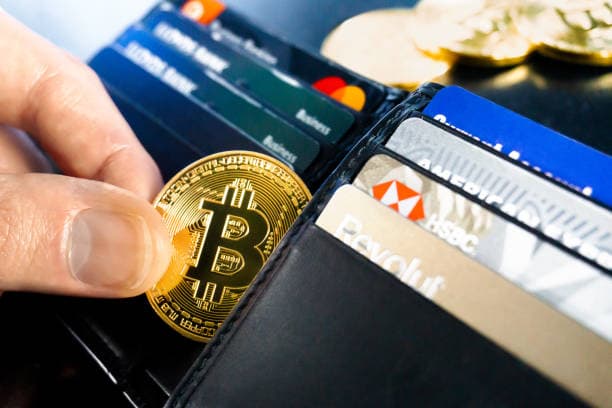Is Bitcoin legit? Is it legal?
In recent years, Bitcoin as a cryptocurrency has gradually become a hot topic in the financial field. Whether in the investment market or in daily transactions, the legitimacy of Bitcoin and the question of whether it is a legitimate currency have often become the focus of discussion among many Taiwanese friends. So, is Bitcoin a legitimate currency or not? Is it legal? In this article, we'll take a closer look at the legal status of Bitcoin in Taiwan and around the world, and help you better understand the future of this crypto asset. Hopefully, this will help you make an informed decision before trading or investing in Bitcoin.

Is Bitcoin a legitimate currency?
Let's clarify the concept of "legal tender". Traditional legal tender usually refers to the form of money issued by the central bank of a country and recognized by law. For example, Taiwan Dollar and US Dollar are legal tender. Bitcoin, on the other hand, is not issued by a government or controlled by a centralized institution; it is a decentralized digital currency. This means that Bitcoin does not fit the definition of traditional money.
Nevertheless, many countries and regions have an open attitude towards Bitcoin and allow it to be traded as a payment instrument or asset. Although Taiwan has not yet made Bitcoin legal tender, it does not prohibit the use of Bitcoin and provides relatively lax rules for transactions conducted with Bitcoin. As a result, Bitcoin may be considered a "quasi-legal currency" in some respects and may be partially recognized by law under certain circumstances.
Is Bitcoin legal?
In Taiwan, the legality of Bitcoin is not so much about whether it is legal tender, but about how it is used and traded. According to the FSC, Bitcoin is considered a "virtual commodity" and not money in the legal sense. This means that the use of Bitcoin in Taiwan is not prohibited, but it is not protected by the state in the same way as Taiwan dollars.
For example, it is not illegal to use Bitcoin to purchase goods or pay for services, but it is not mandatory for merchants to accept Bitcoin as a means of payment. There is no specific legislation governing Bitcoin transactions in Taiwan, so organizations involved in Bitcoin transactions are required to comply with anti-money laundering (AML) and Countering the Flow of Funds to Terrorists (CFT) regulations. If financial transactions are involved, users of Bitcoin need to be careful not to violate other financial laws and regulations.
Bitcoin's global legitimacy
Globally, the legality of Bitcoin varies from country to country. Some countries, such as the United States, Japan and some parts of Europe, are open to Bitcoin and consider it a legitimate asset or commodity. For example, the U.S. treats Bitcoin as property and taxes transactions, while Japan treats Bitcoin as a legitimate means of payment and regulates it accordingly.

There are also some countries that have a ban on Bitcoin. China is one of them, having announced a ban on the trading of Bitcoin and other cryptocurrencies back in 2017, as well as a strict ban on financial institutions offering related services. Similarly, India had a similar ban at some point, although some legal attitudes are still in flux.
The legality of Bitcoin has not yet been standardized globally, so it is important for users who want to engage in Bitcoin trading to be aware of each country's laws and regulations.
Bitcoin Trading and Use in Taiwan
In Taiwan, although Bitcoin is not officially recognized as legal tender, it is relatively tolerated and regulated as an investment tool and means of payment. The Taiwan government's regulation of Bitcoin is relatively lax, focusing mainly on anti-money laundering and preventing the movement of terrorist funds. Cryptocurrency exchanges such as OKX and Binance operate in Taiwan and comply with local regulations.
For the general public, the use of Bitcoin for cross-border payments or investments does not violate the law. If a larger amount of money is involved, it is necessary to report the transaction to the tax authorities and pay the corresponding tax according to the relevant regulations. For most ordinary investors, this will not pose too much of a problem, but it is still necessary to pay attention to the latest developments in the law to avoid unnecessary risks.
How to trade Bitcoin safely?
Even though Bitcoin itself is not illegal in Taiwan, you still need to be careful when trading it, especially against fraud. Choosing a secure trading platform is crucial. Exchanges like Ouyi provide a full KYC (verification of identity) program and anti-fraud protection to minimize risk. It is recommended to use 2FA (Double Authentication) to protect your personal account and avoid any loss of assets due to negligence.
The Future of Bitcoin
The future of Bitcoin remains uncertain as technology develops and market demand grows. Many financial experts predict that Bitcoin has the potential to become a part of the global financial system, and its application scenarios may be further expanded, especially with the impetus of blockchain technology. Although Bitcoin still faces challenges such as regulatory uncertainty and price volatility, it is undoubtedly gaining a foothold in the global financial market.
For Taiwan users, with the government's gradual improvement of cryptocurrency regulations, Bitcoin may have more legal protection in the future and may become a more common payment tool or asset class. As long as we keep an eye on market changes and adjust our strategies in a timely manner, there will still be plenty of investment opportunities in the cryptocurrency space in the future.
Frequently Asked Questions Q&A
1. Is Bitcoin trading prohibited in Taiwan?
No, Bitcoin trading is not currently banned in Taiwan. Bitcoin is considered a virtual commodity that can be used for investment or payment for some goods and services, but is not yet recognized as legal tender.
2. How are the tax issues of Bitcoin handled in Taiwan?
If you are trading Bitcoin in Taiwan, you should be aware that there may be income tax implications on the proceeds of your transactions, especially if you are trading in capital gains. It is recommended that you keep records of your transactions and comply with the relevant tax reporting requirements.
3. Is the Bitcoin trading platform secure?
Choose a well-known and regulated trading platform, such as OKX, Binance, etc., which usually provides a higher level of security. Be sure to turn on security settings such as dual authentication to prevent account theft.














